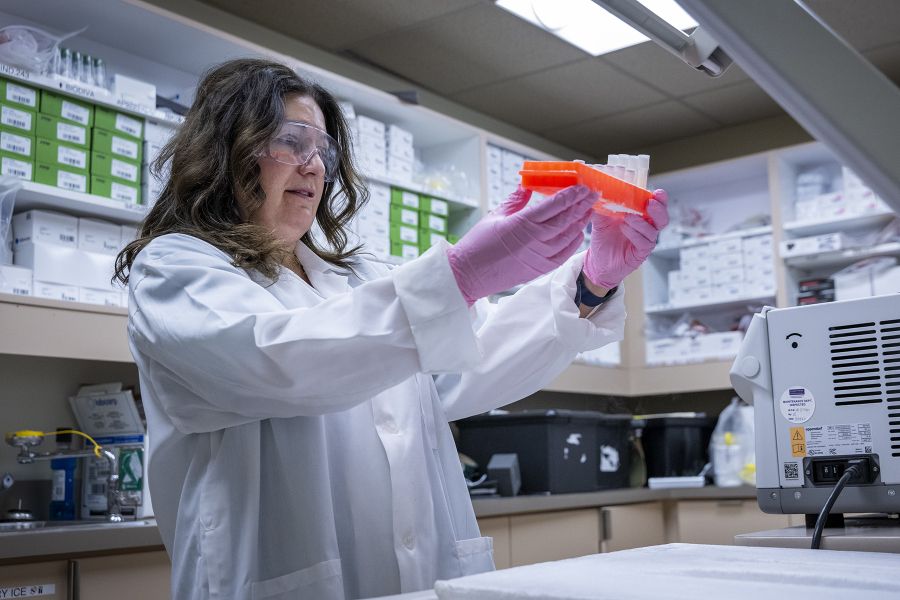Effective immediately masking is required for everyone when present on all inpatient units, in the Emergency Department (ED), the Urgent Care Centre (UCC), and the Children’s Outpatient Centre (COPC).

It may seem like a small part of the overall care we provide for our patients, but a hospital identification band is one of the most important tools we have to keep our patients safe. That’s why KGH is launching an education blitz to remind our staff, patients and families about how important proper identification is in a health-care setting.
“Proper identification of patients is a foundation of providing safe care,” says Susan McIlroy, Patient Experience Specialist. “We also want to let patients and families know that we will ask to see their ID bands several times a day, and for them to remind us if we forget.”
Proper identification is an accreditation standard for KGH and it applies to two different groups of patients. The first group includes all inpatients and some outpatients undergoing certain procedures. They need to be given ID bands when they enter the hospital and keep them on during their entire stay. The second group are patients who come into the hospital for care, such as an MRI or CT scan. They do not need an ID band, but still need to be properly identified.
“For those patients, we need to ask them for two patient identifiers at each step of the process while they are here. A patient identifier can be their name, address, birthday or health card. For example, the receptionist will ask for these things when they arrive and the technologist will need to do the same thing to ensure they have the right person before performing any procedure,” says McIlroy.
While patient identification isn’t a major issue at KGH, a recent survey showed we could be doing better. Staff did a point-in-time survey back in December in all inpatient areas, as well as in the Emergency Department and Imaging. Of the patients that the surveyors could see, about 16 percent didn’t have an ID band when they should have.
“After the survey, we visited staff in 15 different areas in the hospital to see what the barriers were that were stopping patients from getting ID bands. One of the issues we identified was that some of our staff didn’t know where to go to get a patient a new ID band if the old one is lost or damaged,” says McIlroy.
That’s why KGH will be launching an online learning module this summer that will be mandatory for all staff who directly interact with patients. It will include education on all aspects of our ID policies and processes. It will also help empower our staff to keep talking with our patients about proper identification.
“We understand it can be awkward to ask a patient several times a day to see their ID band, or ask them multiple identifying questions. We don’t want to look like we don’t remember our patients. But it would be much worse to give someone the wrong medication, because they moved beds and we forgot to check their ID band,” says McIlroy.
Gallery


Making sure patients are wearing their ID bands is one of the important ways we can support safety.



